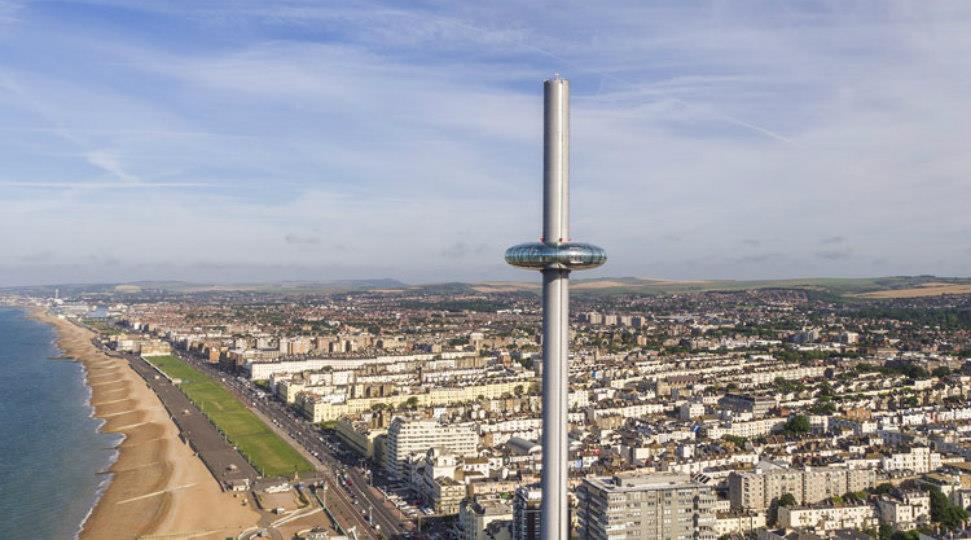
Newly released census data shows that while Brighton and Hove may be diverse in many respects, it remains very white.
While big English cities such as London and Birmingham have seen jumps in the numbers of ethnic minorities, in Brighton and Hove 85.4 per cent of people responding to the 2021 census described themselves as white.
Census data from 2021 shows that Brighton is slightly whiter than the rest of England and Wales and its citizens are still overwhelmingly British or English, with 81.6 per cent of residents claiming those nationalities.
Some 88.6 per cent of residents said English was their main language in the city (245,614 people), with Arabic the second most spoken language.
London remains the most ethnically diverse region of England, with 36.8 per cent of people identifying as white English, Welsh, Scottish, Northern Irish or British, down from 44.9 per cent in 2011.
Brighton and Hove also has a whiter population than comparable cities such as Southampton (80.7 per cent), Bristol (81.1 per cent), Cardiff (79.2 per cent) and Cambridge (74.5 per cent) – although others, such as Norwich (87.1 per cent), Exeter (90.3 per cent) and Canterbury (89.2 per cent) have a whiter population.
Ethnicity
Those who described their ethnicity as white English, Welsh, Scottish, Northern Irish or British (204,831) made up 73.9 per cent of those in Brighton and Hove.
The wider white category, which includes Irish, gypsy, traveller or Roma and other white ethnicities, accounts for 85.4 per cent of Brighton and Hove residents (236,571 people).
This is slightly higher than the 81.7 per cent (48.7 million) of usual residents in England and Wales who identified their ethnic group as white in 2021.
The second most populous ethnicity grouping was those from mixed or multiple ethnic groups, representing a combined 4.7 per cent of the city, (13,228)
The second most common ethnic group across the country – Asian, Asian British or Asian Welsh – was a close third in Brighton and Hove, with 13,217 residents (4.7 per cent).
Nationality
A total of 159,825 people (57.7 per cent) of the city reported their identity as British only, while 11.4 per cent said they were English only (34,828 people).
Combined, along with those who said that they were both English and British, this represents 81.6 per cent of the city.
The census notes that changes in self-perception since the 2011 census may reflect the increase in British and corresponding fall in English identity across the national picture.
The 9,497 people who claim dual nationality, with at least one UK identity and another identity, make up 3.4 per cent of the city.
European nationalities dominate Brighton and Hove’s next most popular national identities, with the next top three identities being unspecified non-EU European countries (2.1 per cent), Italian (1.0 per cent), and unspecified EU countries (0.9 per cent).
Polish identities represented 0.7 per cent of the city (1,850 people), despite remaining the number one non-UK identity across the country since 2011.
Language
In Brighton and Hove 88.6 per cent of people reported English as their main language in 2021 (245,614 people).
Arabic is the second most spoken language in the city, with 2620 speakers (0.9 per cent).
Spanish (0.9 per cent), Italian (0.8 per cent) and Polish (0.6 per cent) made up the rest of the top five languages in Brighton and Hove.
Romanian, which came out as the nation’s third most spoken in 2021, was only the eleventh most popular language in Brighton and Hove, with 827 speakers (0.3 per cent).
Only 40 people spoke Ukrainian as their main language in the city, but the census was taken before the beginning of Russia’s invasion of Ukraine and the subsequent resettlement program for refugees.









Is it known how many people in Africa are STILL black? This article is making out that there is an issue with being mostly white in this city. Is there any issue with being black in Africa? Course not.
This is a racist comment. Africa is a continent, not a country. Have you ready about the apartheid in SA? Go on, ask me where I am really from.
The main problem is that people in Brighton are far more likely to bang on about the benefits of diversity.
The census data claims the population of B&H has risen by only 1.5% since 2011 compared to the national average of 7%.
IMO a lot of people didn’t bother filling it in. If there was an advertising campaign it wasn’t memorable
Do you mean the legally mandatory census?
Ignoring that for a moment, a slowdown in population growth could be quite worrying, because that could indicate some issues, the easiest thing to point at first is house prices in the area, then consider the cascade of problems that starts to highlight with job vacancies, commercial health of the area, rising costs due to low demand, etc.